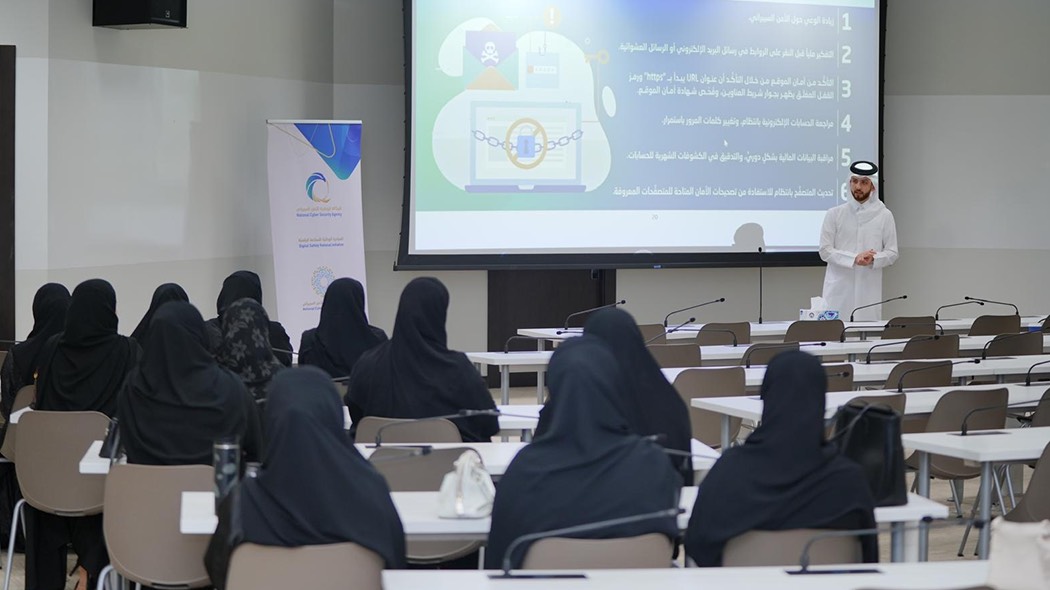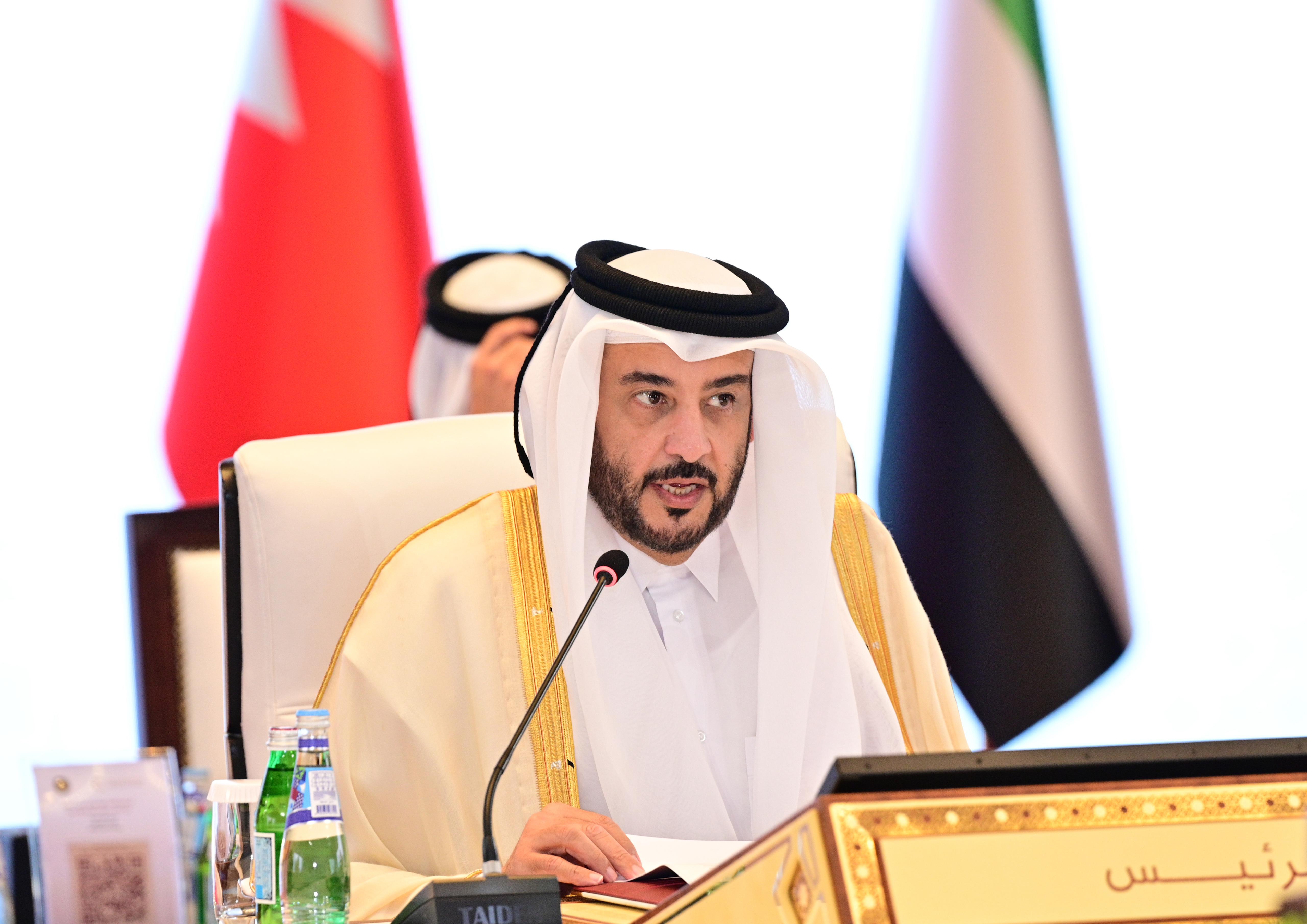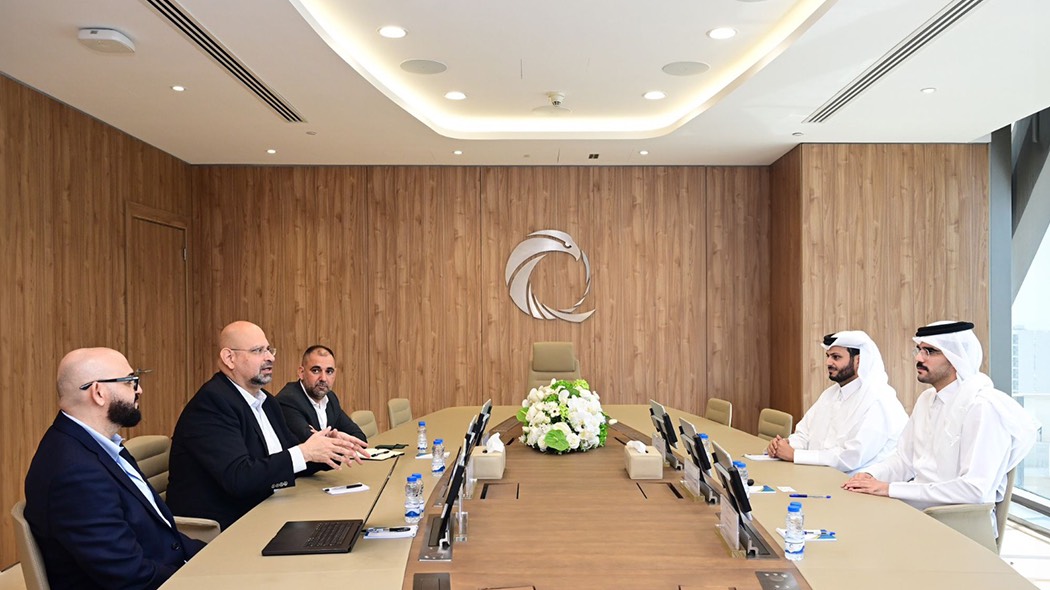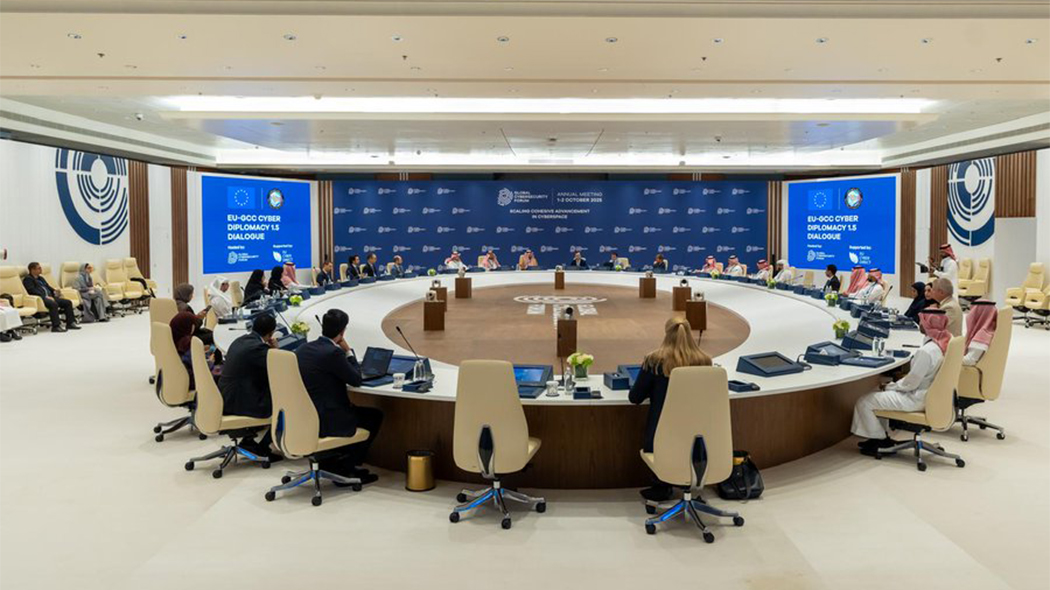
NCSA Conducts an Awareness Workshop for Qatar University Students
The National Cyber Security Agency (NCSA), through the National Cyber Security ...
In case of suspecting or being victimzed by a cyber-security incident, please contact us via the following means:

 Call to: 16555
Call to: 16555

 Send by Email
Send by Email


The National Cyber Security Agency (NCSA), through the National Cyber Security ...

Mr. Ahmed Mohammed Al-Mutawa Al-Hammadi, Director General of the National Cyber...

National Cyber Security Agency participated in the Cyber Diplomatic Dialogue bet...